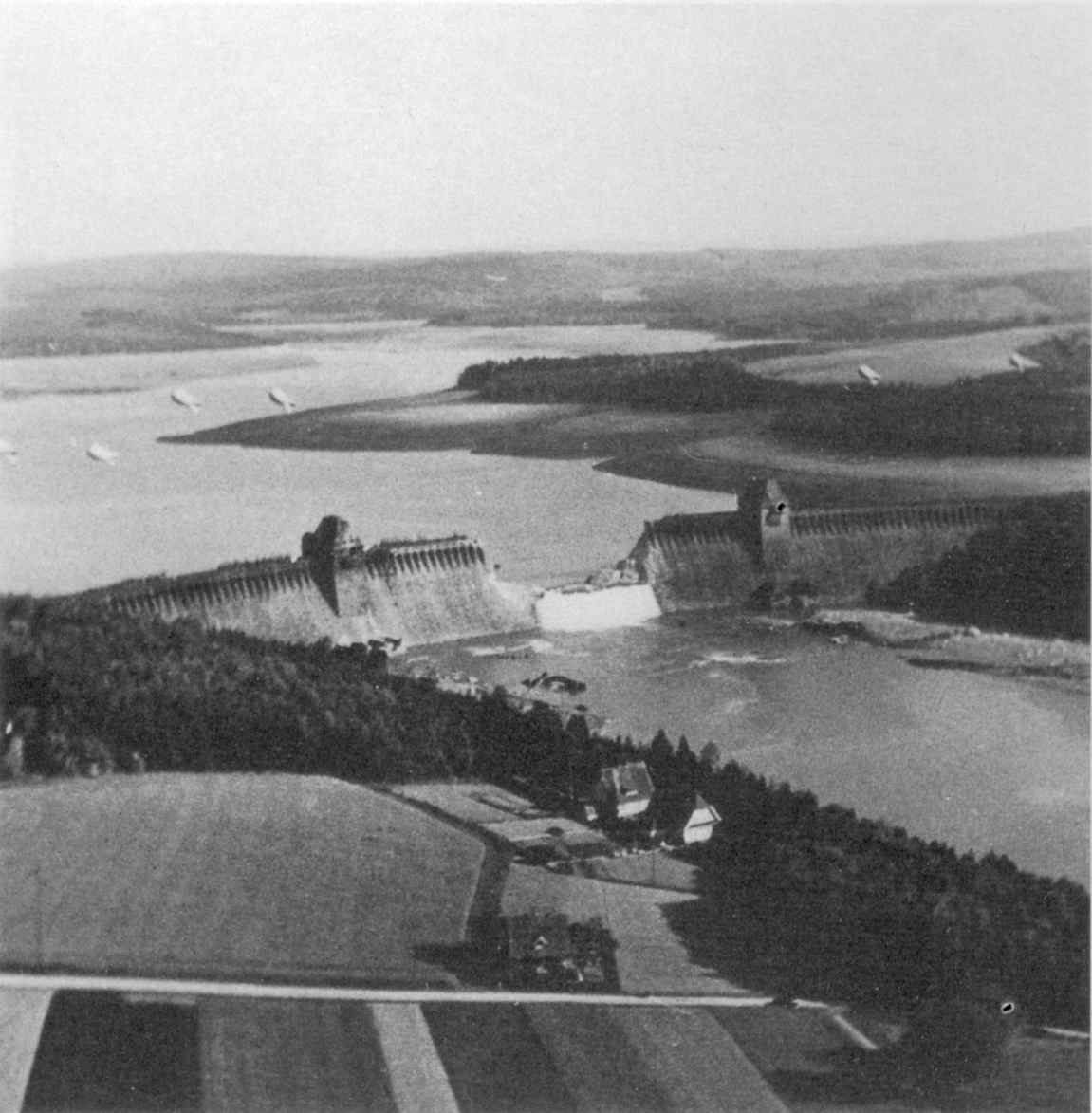André Guédez – fell from the sky on Christmas Day 1944
On 24th December 1944, Frenchmen André Guédez and Hervé Vigny were bombing Essen with RAF Bomber Command when Andre’s aircraft was shot down. Now retired in Dax, (SW France) the two men have never forgotten their experience.
Most of us get to be involved, at least once in one’s life, in a good Christmas story, but the one which happened to the two retired airmen from Dax, André Guédez and Hervé Vigny, is quite rare. 70 years ago to the day, André, a volunteer airman in one of the two French Heavy Bomber Squadrons within the RAF, 1/25 “Tunisie” (No.347 Squadron) based at Elvington near York was “celebrating” Christmas in Germany after miraculously surviving the destruction of his Halifax bomber.
Named L for Love, the aircraft was shot down on a mission during the famous Battle of the Ruhr. He thought he would get back to Elvington once his mission was accomplished and spend a quiet Christmas Eve that night with his pretty English girlfriend. Unfortunately on that 24th December, above Essen Mülheim, location of the Krupp armaments factory, André Guédez and his aircraft never returned from “Happy Valley”, as the glorious British airmen used to ironically and sarcastically call it.
“The Ruhr sky was, at that time, the most explosive place in the world. The Germans had more than 30,000 anti aircraft batteries around their factories and towns. It was the industrial heart of the 3rd Reich, even though it was tottering at that time. On each incursion, especially at night, we were floodlit like in a parade, with continuous fire from anti-aircraft guns. We knew one in two aircraft might not come back, and until that day, I had been lucky”.

André Guédez, who was an air gunner in his Halifax 4-engined bomber, remembers that the first shell hit the inner port engine. “It was quickly on fire, but we still had three engines. The second shell cut the aircraft controls. This time, it was lost.” After dropping their bombs on the target, which had been lit up by the “Pathfinders” (two Mosquito aircraft called Master 1 and Master 2, who lead the operation flying at low altitude), the injured Halifax pulled out.

top row from left to right: Sergeant André Guédez, mid upper gunner, Sergeant François Duran, flight engineer, Sergeant Yves Even, rear gunner.
first row from left to right: Sergeant Louis Baillon, pilot, Flying Officer Jacques Leroy, navigator and captain, Pilot Officer Pierre Gautheret, bomb aimer, Flight Sergeant Henri Granier, radio operator.
No parachute.
“The pilot and the co-pilot gave us the order to jump. I then disconnected the heating of my suit and my oxygen mask. At 6000m high, the temperature was –50C and the oxygen is very rare. In a few minutes I knew I would be unconscious.”
For luck and out of bravado, André had thrown his parachute into a corner. He discovers with horror a huge hole in the fuselage and thinks his precious parachute has been blown away. When he eventually finds it, he starts to see stars in his eyes. He has just enough time to fasten the parachute and fall though the escape hatch.
“I was scared, paralysed by the cold and the lack of oxygen. The Flight Engineer who was behind me pushed me out of the hatch into the open air. I probably opened my parachute instinctively. After that I can’t remember anything.” When he wakes up a few hours later, he is lying on a camp bed. André Guédez, is already a prisoner.

“When I opened my eyes, I saw kids with noses pasted to a window looking at me. An old German soldier, a poor guy who had been called-up, was looking after me.”
André Guédez’ first thoughts are for his English girlfriend waiting for him in England. “We really were in clover at the station, cherished and pampered, and I said to myself the dream was over and there would be no Christmas Eve that night by the fireplace.”
The 24-year-old young man doesn’t realize he is a miraculously survivor.
“I learnt afterwards that we were only two survivors out of the seven crew members. The others were killed on the aircraft or shot whilst bailing out.”
At that time the Germans are furious against the Allied airmen. The terrible bombings in Dresden, which caused the death of 45,000 people, are considered war crimes.
“They threw me into a civilian prison on the night of 24th December. That’s where I found my Flight Engineer, who had survived as well. We were happy to see each other again. The day after we were sent to an interrogation centre. We spent a real hard time when a Wehrmacht Officer, a dead ringer for the actor Eric Von Strohein, threatened us. As French people we were considered as irregular soldiers.”
Prisoner in Germany.
André Guédez spent four and a half months as a prisoner in Germany.
“We were eventually sent near Munich. Hitler had the crazy idea of setting up a prison of war camp in the Bavarian Alps. The Americans released us on 29th April 1945.”
Hervé Vigny was on the same mission. He got back home safely and accomplished 35 missions in total before the end of the War. The two men met again 60 years later in the Landes (Aquitaine SW France). Along with Marcel Berthomé (France’s oldest Mayor) and another retired friend in Tarnos, they are now the only survivors of the WW2 “Tunisie” Squadron and they now enjoy a peaceful retirement at la Résidence du Soleil.

Aged 94 and 97 André and Hervé haven’t forgotten a thing.
Article by OLIVIER BONNEFON from Sud Ouest: [email protected]
Translation by Sandrine Bauchet, Yorkshire Air Museum & Allied Air Forces Memorial: [email protected]
